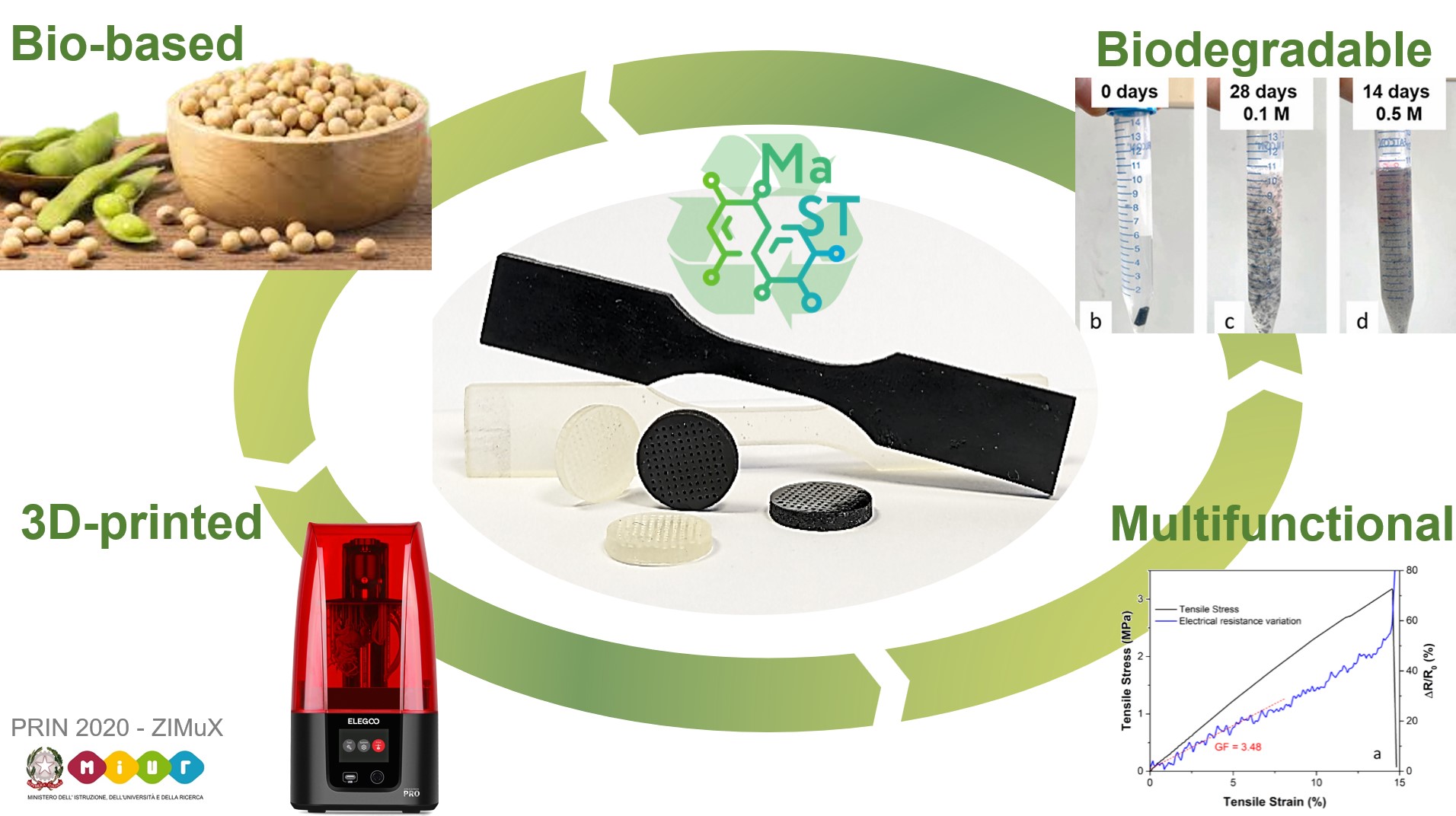New article out!
In our latest publication in Elsevier’s Composite Science and Technology journal, we present the development of 3D-printable biobased resins which are biodegradable and multifunctional.
Soybean oil, which has been modified by epoxidation and acrylation (AESO), and carbon nanotubes were combined into UV-curable composite resins that were 3D-printed using the DLP technique. The resulting components combine self-monitoring properties (i.e. the variation of electrical resistance when the material is deformed, allowing for the measurement of the deformation and the health status of the part) with biodegradability,
Check out the paper here.
M. Bragaglia, L. Paleari, J. Passaro, P. Russo, F. Fabbrocino, R. Luciano, F. Nanni. “3D printing of biodegradable and self-monitoring SWCNT-loaded biobased resin”. Composite Science and Technology, 2023, 243. https://doi.org/10.1016/j.compscitech.2023.110253
Abstract
https://doi.org/10.1016/j.compscitech.2023.110253
In this paper a acrylated epoxidized soybean oil (AESO) based photo-curable resin loaded with 0.25% by weight of single walled carbon nanotubes (SWCNT) was produced to manufacture biobased, self-monitoring and biodegradable materials via 3D printing digital light processing (DLP). The CNT addition plays a role in providing self-monitoring properties, however they affect the 3D printing process as they absorb UV radiation which has to be compensated by increasing the exposure time. The produced 3D printed samples show good dimensional/geometrical definition, interesting mechanical properties (elastic modulus of 25 MPa, tensile strength of 2.6 MPa and Shore D hardness in the range 50–60) and very good self-monitoring performance, as the materials offer satisfactory sensitivity (Gauge Factor GF = 3, higher than commercial strain gauge sensors). Accelerated degradation tests in NaOH solutions at different concentration showed that 3D printed samples suffer hydrolytic degradation confirming the biodegradability feature.
This work was supported by the Italian Ministry of Education, University and Research (MIUR), PRIN 2020, Project 2020F23HZ7, CUP E85F22000230006, Zero Impact MUltifunctional 3D printed composite materials for biomedical and industrial applications in the neXt generation society (Project ZIMuX)


